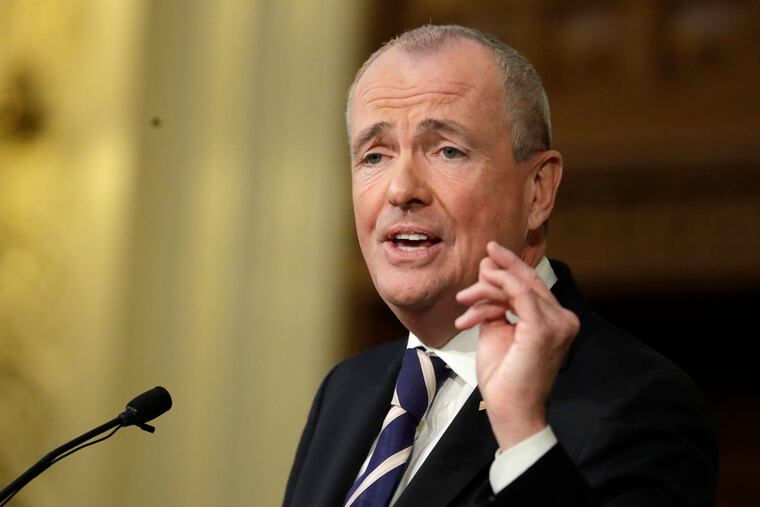N.J. governor, lawmakers reach deal on $15-an-hour minimum wage
New Jersey Gov. Phil Murphy and the Democratic leaders of the Legislature say they've reached a deal to raise the state's minimum wage to $15 an hour by 2024

New Jersey’s minimum wage will be raised yearly until it reaches $15 an hour in 2024 under an agreement announced Thursday by Gov. Phil Murphy and the Democratic leaders of the state Legislature.
The current minimum of $8.85 would go up to $10 on July 1, then would be increased to $11 on Jan. 1, 2020, and would go up $1 an hour every Jan. 1 until 2024.
Wages for seasonal workers and employees of businesses with five or fewer workers would go up more slowly, reaching $15 an hour by Jan. 1, 2026.
Farm workers would be at $12.50 an hour by Jan. 1, 2024, but state officials could then decide to hike it to $15.
Murphy campaigned on a promise of raising the minimum wage to $15, but it failed to become a reality in his first year in office despite Democratic control of both the executive and legislative branches.
In a joint announcement with Senate President Stephen Sweeney and Assembly Speaker Craig Coughlin, Murphy said the agreement is a historic step on behalf of more than one million New Jersey workers.
Sweeney (D., Gloucester) said the plan “will put New Jersey in the forefront of the national movement to build a high-wage economy.”
California, New York, and Massachusetts have already taken steps to phase in a $15-an-hour minimum wage.
Sweeney cautioned that as the increases take effect, New Jersey state leaders will need to “be sensitive to the impact it will have on working people who are below the ‘safety net’ and could be at risk of losing benefits as their wages increase.”
The New Jersey Business and Industry Association reiterated its opposition to the $15 minimum and called the effort “another hit to small businesses.” Some businesses, it warned, will “struggle, stagnate, or simply fail” because of the mandated increase.
“An increase that is too drastic and rapid will result in a reduction in hours and benefits, increased costs of goods and services, and an acceleration to automation,” the association predicted.
New Jersey Policy Perspective, a liberal think tank in Trenton, cheered the agreement.
“Raising New Jersey’s minimum wage to $15 an hour is one of the most consequential, pro-worker policies enacted in state history,” said Brandon McKoy, director of government and public affairs for the organization.
"We applaud the inclusion of teen workers, who were at risk of being carved out of this legislation, as their work is just as valuable to the economy and their families as anyone else's," McKoy said.
“For the state’s agricultural and tipped workers, there remains more work to be done. Employees in these sectors face unique challenges that this legislation leaves unaddressed. The dignity of all workers must be recognized.”
In Pennsylvania, the minimum wage of $7.25 — the same as the federal minimum — has been stagnant for over a decade.
Gov. Tom Wolf, a Democrat, proposed raising the minimum wage in each of his first four years in office and is expected to do so again in his budget address next month.
But the effort, largely supported by Democratic lawmakers, has stagnated in the Capitol. Republicans control both legislative chambers, and its leaders have for years balked at an increase, with many saying they would prefer the federal government deal with the question of whether a hike is necessary.
Proposals that have been floated over the years by lawmakers have sought to boost the minimum wage up to either $12 to as high as $15.
According to a study by the Keystone Research Center, a liberal-leaning think tank in Harrisburg, raising the minimum wage to $15 an hour would lead to an increase in the incomes of 253,698 Philadelphia residents.
In December, Mayor Jim Kenney signed into law a $15 minimum wage for city workers and contractors.
Staff writer Angela Couloumbis contributed to this article.